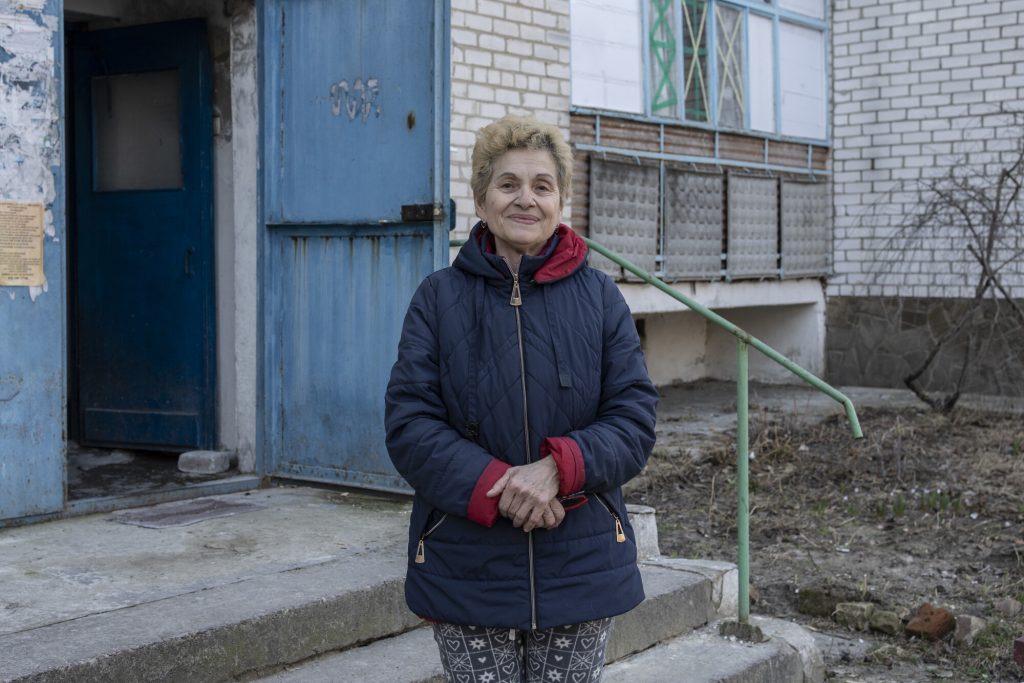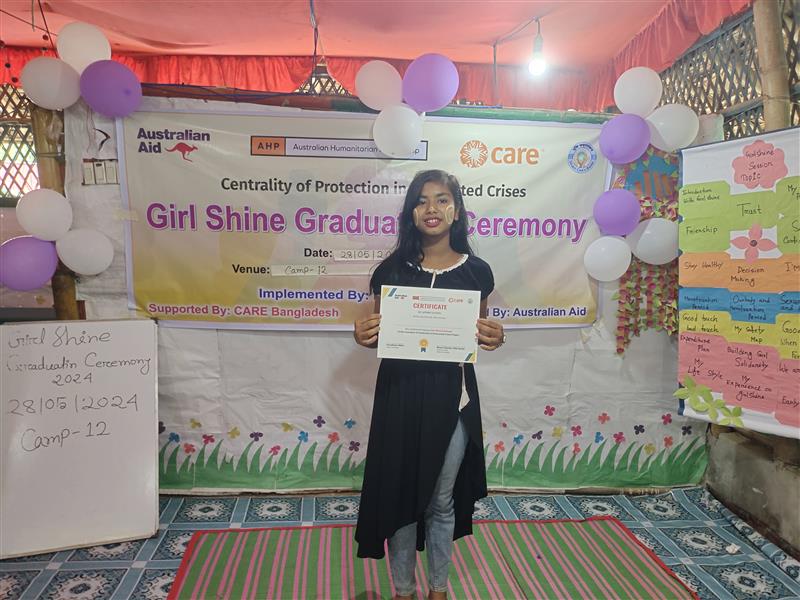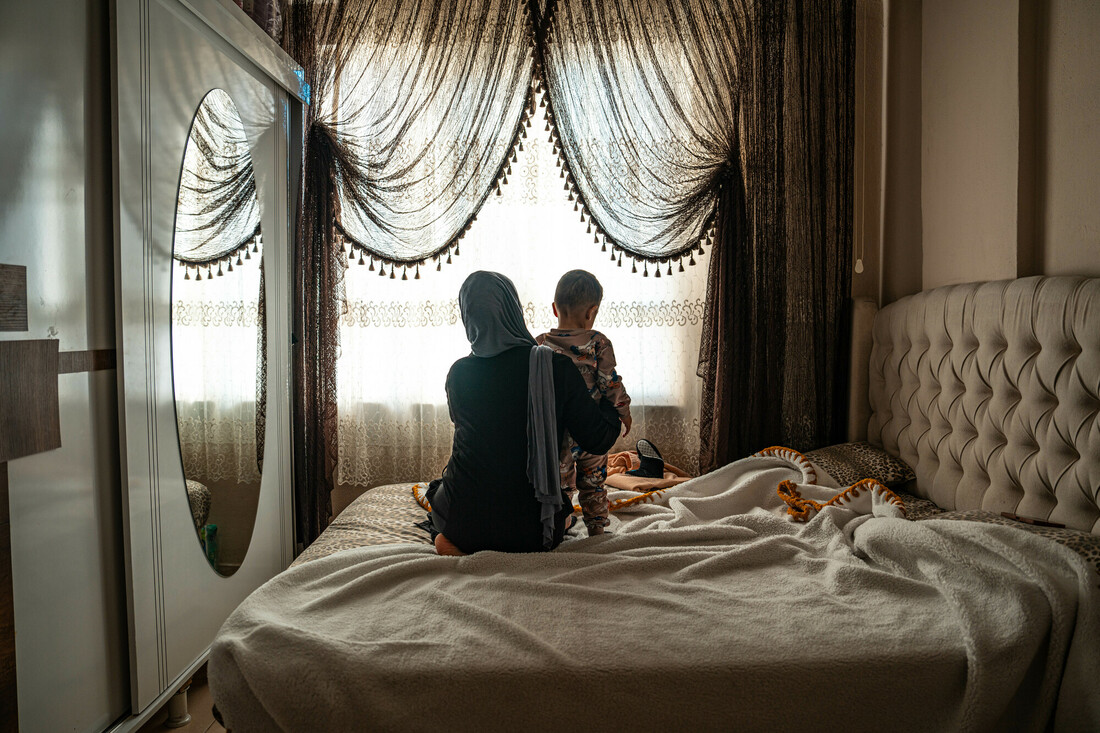We work to prevent and respond to violence against women and girls, ensure that people’s rights are respected, and they have access to what they need to live a life of dignity.
CARE works to prevent harm such as violence, abuse, neglect, and exploitation, especially against those who may be more at risk, including women, children, and people with disabilities. We support people to access essential services, protection, legal help, and clear information. Everyone deserves to live with dignity, to make decisions about their own bodies, and to take part in their families and communities.
Protection and Safety for Women and Girls
Specifically, CARE works to prevent and respond to violence against women and girls, which can happen any time and often increases during times of crisis. We support women and girls to access safe spaces, health care, counselling, and legal support. We also work with communities to challenge harmful attitudes, shift power imbalances, and create safer homes and public spaces. Every woman and girl has the right to live free from fear and violence.
Fast Facts
There are approximately 122 million people forcibly displaced due to war, persecution, violence, and human rights violations, equating to one in every 67 people globally.
Over 600 million women and girls are affected by war, a 50% increase in a decade. This has led to a doubling of female civilian deaths in war zones, and a 50% increase in conflict related sexual violence since 2022.
Gender Based Violence is the most pervasive human rights violation globally. This includes intimate partner violence, sexual violence, female genital mutilation, child marriage, and other harmful practices.
Impact stories
Tatyana in Ukraine
Tatyana, 65 years old, lives on the first floor of a building in Svatohirsk, Ukraine, with her husband, Sergey. She used to work as a nurse, and is now a pensioner. In July 2022, the roof of her multi-storey building was damaged by a missile strike.
Tatyana’s roof was repaired, thanks CARE’s partner Avalist, as part of the CARE Ukraine Winterisation and Resilience Program, which aims to meet humanitarian needs and improve the living conditions of the population.
“In July or so, a bomb hit the roof. It landed behind the building, there was a crater, a pit. It hit it with shrapnel, shattered this whole roof.” Showing the staircase, she explained “It was all wet up there. Now it’s not leaking, it’s good, it’s done.”, Tayana said.

Innas in Bangladesh
14-year-old Innas was born into a large family with twelve siblings. Her family, once thriving in Myanmar, faced unimaginable violence in the Rakhine State, forcing them to flee to Bangladesh in search of safety.
Life in the Rohingya camp has been fraught with challenges. Her father is ill and unable to work, leaving her mother, Fatema, to labor as a day worker to support the family. Amidst these hardships, Innas found a beacon of hope in the adolescents’ group and later in the ‘Girl Shine’ program.
The program, run by CARE Bangladesh and local partner Mukti, is designed to help prevent and respond to violence against adolescent girls in crisis settings, by providing them with skills and knowledge to identify types of violence against women and girls, and seek support services if they experience these or are at risk.
Through the program, Innas learned invaluable life skills, including financial management through the “My Expense Decision” module. This knowledge became a crucial tool in her hands. With her father unable to manage his small grocery shop due to his illness, Innas stepped in to help. Balancing her schoolwork with the responsibilities of running the shop, she demonstrated a level of maturity and dedication beyond her years. The skills she acquired from the Girl Shine curriculum equipped her to manage the shop effectively, make informed decisions, and keep the business running smoothly.
Her involvement in the group also brought about significant personal growth. Before joining, she struggled with understanding personal boundaries and lacked self-confidence. The program educated her about the differences between good and bad touch, empowering her to recognise and protect herself from potential harm.

By learning about good touch and bad touch, now I know and can understand who has bad intentions and can do something wrong with me while visiting school or in the shop. In my daily life, I can be safe from those types of people and now I know from where I can seek support and especially that no violence is my fault.
— Innas shares.
Her newfound confidence is not just limited to self-protection; it extends to her role within her family. She actively participates in discussions with her father, offering her insights and suggestions. Furthermore, she has become diligent in maintaining personal and household hygiene, a practice she learned during the sessions.
Innas’ story highlights the importance of empowering young girls with knowledge and confidence, enabling them to take charge of their futures and contribute meaningfully to their communities.
Photos: © 4K Production/CARE, © Yousef Ruzzi/CARE, © Myriam Renaud/CARE and © Taslima Akter/CARE.

